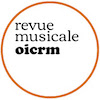Colloque interdisciplinaire « Sound, Meaning, Education. Conversations », Northern Arizona University & Western University, en ligne, 21 juillet 2021.
« Music educators across all levels have traditionally concerned themselves with teaching musicality and musical interpretation as it is mediated by western music notation. Increasingly, digital technologies allow composers, producers, and DJ’s, among other musicians, to demonstrate a kind of musicality without notation as an intermediary; musical sounds can be created and manipulated directly without reference to western notation or traditional music theory. Such practices connect to the ways that humans overwhelmingly interact with music throughout the world, in vernacular and non-western contexts where notation plays a less prominent role. A natural extension of these phenomena is that music listeners likely also procure musicalities in their abilities to interpret and understand musical sounds directly. Embodied cognitive theory (psychology) and ecological theory (philosophy) have potential for helping us understand such phenomena–but, so far, these alternative musicalities have been under-explored and under-developed within institutional music education and general education contexts. At the same time, in the last several years, a number of scholars, in a variety of disciplines outside of music and music education (performance studies, media studies, cultural studies, film studies, communications, etc.), have begun to chart this territory. As part of a ‘sensory turn’ across the academy (see the work of David Howes), these sound studies and auditory culture scholars have utilized and developed new theoretical frameworks, beyond traditional musicological/aesthetic frameworks, to explore human experiences with sounds and their meanings, musical sounds included. The work of Jonathan Sterne, Les Black, Michael Bull, and Anahid Kassabian has been especially foundational to this area of inquiry. Such scholars seek to characterize and theorize the concept of sound and sound experiences, viewing them as foundational and integral to concepts of music and musical experiences.
This interdisciplinary, virtual conference explores how such musicalities and embodied knowledges of sound might bear on education and pedagogy on any level and within any context. Scholars across the disciplines will discuss how sound studies has impacted their work and field, and begin connecting their work to education. »
Pour plus d’informations : cliquez ici.
